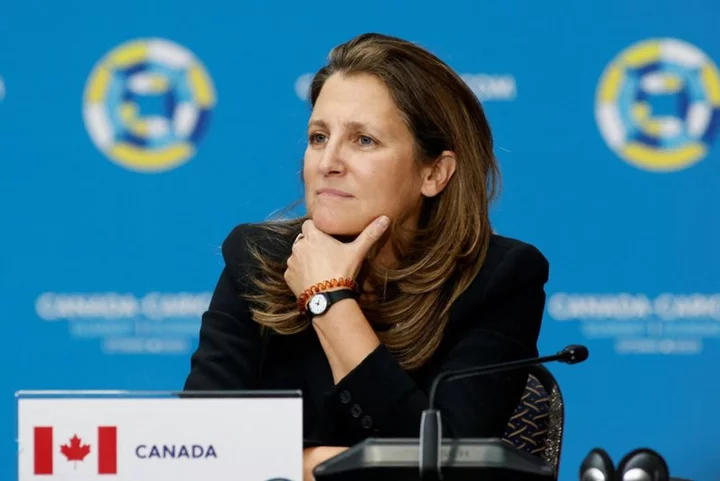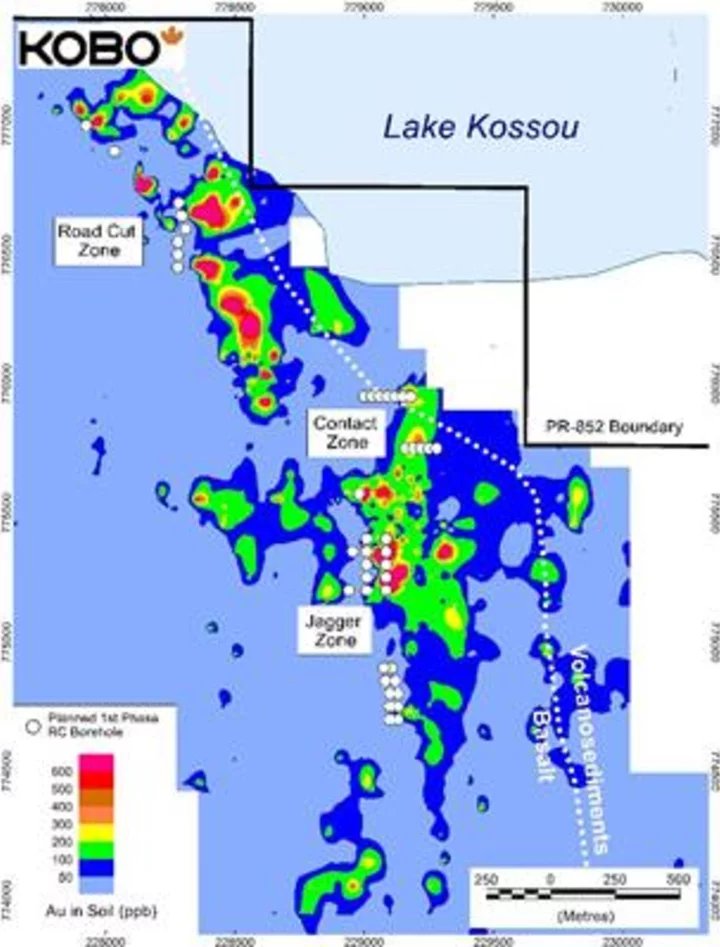By Maiya Keidan
TORONTO Canadian Finance Minister Chrystia Freeland will seek to challenge Alberta Premier Danielle Smith's plan to pull her province out of the Canada Pension Plan (CPP), in a meeting with provincial and territorial counterparts on Friday.
The CPP is facing one of its most challenging periods since Smith's conservative government threatened to pull the province out of the scheme. Prime Minister Justin Trudeau and his main political opponent, the Conservative Party leader Pierre Poilievre, both oppose the plan.
Here is a guide to some of the biggest questions:
WHAT IS CPP?
A nationwide pension scheme called CPP that took contributions from paychecks began in the late 1960s. CPP Investments - an entity to manage its assets - was created in 1997 by the Canada Pension Plan Investment Board Act. Today, it manages about C$575 billion ($415 billion) for over 21 million Canadians, making it the country's biggest pension manager. The mainly French-speaking province of Quebec is not a part of it.
Employees and employers pay a combined 11.4% of a worker's pay into CPP on their annual income between C$3,500 and C$64,000, and retirees receive a pension starting at age 60.
CPP Investments has made an annualized return of 10% over the past decade, according to its latest annual report. In comparison, the Alberta Investment Management Corp (AIMCo), which invests on behalf of 17 pension, endowment and government funds in the province, made 7.2% over the same period. AIMCo has not been considered a vehicle for a new Alberta pension plan.
WHY DOES SMITH WANT A DIVORCE FROM CPP?
Smith argues that a new pension plan for Albertans would lead to bigger payments in retirement and lower premiums and is proposing to transfer C$334 billion, or 53% of CPP's assets, from the scheme into a new provincial pension scheme in 2027, based on a study commissioned by the province.
Several sources, including CPP Investments, have cast doubt on that calculation as being too large. Smith has said the province would have a "firm number" on the transferred amount before a referendum.
Any province can withdraw from CPP by giving written notice, starting a three-year clock for the federal government to evaluate whether Alberta has come up with a comparable pension plan for assets to be transferred into. If the plan is not found comparable to the CPP, then there is no obligation for any asset transfer.
WHAT HAPPENS NEXT
The Alberta government will receive feedback from an online survey and town hall discussions underway by May 2024, which will be followed by a possible referendum in 2025 on whether Alberta should withdraw from the CPP.
Concordia University professor Patrik Marier said that if the referendum goes ahead, he is concerned about the types of pension questions that could be posed, which could complicate the outcome of the referendum.
University of Calgary professor Trevor Tombe said the Alberta government could instead negotiate with the finance minister in Ottawa, responsible for calculating the share of CPP assets owed to Alberta under the Act. However, he said it was "unlikely" they would come to an agreement.
WHAT HAPPENS IF ALBERTA GOES AHEAD WITH THE SPLIT
If Smith fails to agree on the calculation of assets to be transferred from the CPP prior to a referendum, then any calculation would have to be achieved through political negotiation or the court system.
"There's fundamental ambiguity in the language of the act," said Tombe.
If Alberta walks away with more than 22.5% of assets, CPP contributions from everywhere else in the country would have to increase, Tombe estimates. If the Western province were to take the 53% proposed in its report, that could destabilize the fund.
Such a move "dramatically increases" the incentive for British Columbia and Ontario to leave as well and would make it "very important for either of those jurisdictions to do it first," Tombe added.
(Reporting by Maiya Keidan, editing by Deepa Babington)









